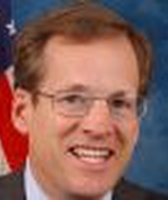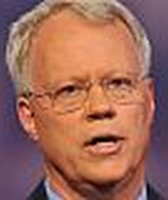Stand up for the facts!
Our only agenda is to publish the truth so you can be an informed participant in democracy.
We need your help.
I would like to contribute
U.S. is the king of coal, Cantor says
American politicians, it seems, love to talk about Saudi Arabia.
During the 2010 election season in Georgia, several Democrats and Republicans separately proclaimed that the Peach State was "the Saudi Arabia of pine trees." We looked at that claim in July 2010 and rated it as Barely True.
One of the latest comparisons to that oil-rich Middle East nation came from House Majority Leader Eric Cantor, one of the most powerful politicians in Washington.
Cantor, a Republican congressman from Virginia, made a stop at the Atlanta Press Club last week during a two-day visit to Georgia. During the question-and-answer part of the program, Cantor took several verbal swipes at President Barack Obama, a Democrat. The criticism included that Obama hasn’t done enough to promote more sources of energy, specifically coal, as motorists fume over high gas prices.
"We are the Saudi Arabia of coal," Cantor said.
More than 90 percent of U.S. coal production goes to generate electricity in the United States, according to the National Mining Association. Cantor explained his point about coal.
"We ought to be able to figure out a way to use that resource so that we can continue to compete," he said.
We wondered in what way was Cantor attempting to make the comparison to Saudi Arabia. John Murray, Cantor’s deputy chief of staff, said the congressman was attempting to be "illustrative."
Murray added more in an email.
"Coal is an abundant domestic resource that remains critical to meeting our country's energy needs," Murray said."While we wait for the administration to present a realistic national energy strategy, we need to harness our existing assets -- like coal -- to generate the power required by American businesses and families."
So let’s look closer at this comparison between the U.S. and Saudi Arabia. Even Obama has repeated the phrase, during a 2009 television interview with the Canadian Broadcasting Co.
Saudi Arabia exports more oil than any nation in the world, 8.7 million barrels a day, according to one U.S. government estimate. Saudi Arabia also has a larger oil reserve than any other country, the U.S. says. The U.S., by the way, ranks 13th and 14th, respectively, in those categories.
Saudi Arabia, the numbers show, is the king of oil exports and reserves.
Now, is the U.S. the king of coal?
The U.S. leads the world in the amount of coal in its reserves, according to data kept by the U.S. Energy Information Administration. Russia was second, but about 50 percent behind the U.S., the EIA data show. But is the former Cold War foe playing coy with its numbers? Some experts believe Russia and China are not releasing the complete estimates of their coal reserves.
The U.S. is producing and exporting less coal than some other nations.
The U.S. produced nearly 1.1 billion short tons of coal in 2009, second to China, according to the most recent data available from the EIA. A short ton of coal equals 2,000 pounds. America’s annual coal production has been about the same since 2000. China, whose economy has boomed during the past decade, has increased its coal production from nearly 1.3 billion short tons in 2000 to nearly 3.4 billion short tons in 2009, EIA data show.
For eight of the past 10 years, the United States has exported an average of 50 million short tons of coal each year. The U.S. currently exports less coal than Australia, Colombia, Indonesia, Russia and South Africa.
The U.S. has the world’s most comprehensive and strongest coal mining regulations, the National Mining Association says. Hal Quinn, the association’s president, told a congressional committee Tuesday that the federal government has placed "high hurdles" on the industry’s efforts to access land where much of the nation’s coal reserves are held. The association represents about 325 corporations in the mining industry.
Others question how minable those reserves are. West Virginia University law school professor Patrick McGinley said much of America’s coal is in places that are more difficult to mine. He noted recent research that concludes that the world’s coal production (its highest quality and reasonably minable coal) will reach its peak this year.
"It’s not realistic to equate the coal reserves in the United States with the oil reserves in Saudi Arabia," said McGinley, who served on a panel that investigated the coal mine explosion in West Virginia that killed 29 people in April 2010.
Cantor’s argument is supported by data that show the United States currently has the world’s largest coal reserve. America has fallen far behind China in terms of coal production, and the United States is behind several other nations in exporting coal. The congressman’s statement leaves out some details concerning America’s standing in coal.
Since the United States is still the Saudi Arabia of coal reserves, we rate Cantor’s claim as Mostly True.
Our Sources
U.S. Energy Information Administration, Coal Statistics
PolitiFact Georgia, "Politicians claim Georgia is to pine trees what Saudi Arabia is to oil," July 25, 2010
Canadian Broadcasting Co., President Barack Obama interview, Feb. 17, 2009
Central Intelligence Agency, "The World Factbook: Oil Exports"
Central Intelligence Agency, "The World Factbook: Oil Proved Reserves"
Email and telephone interview with John Murray, deputy chief of staff to U.S. House Majority Leader Eric Cantor, R-Va., May 23, 2011
National Geographic, "Mining the Truth on Coal Supplies," Sept. 8, 2010
National Mining Association, Congressional testimony of Hal Quinn, May 24, 2011
Telephone interview with West Virginia University professor Patrick McGinley, May 24, 2011
Browse the Truth-O-Meter
More by Eric Stirgus
U.S. is the king of coal, Cantor says
Support independent fact-checking.
Become a member!
In a world of wild talk and fake news, help us stand up for the facts.

























































